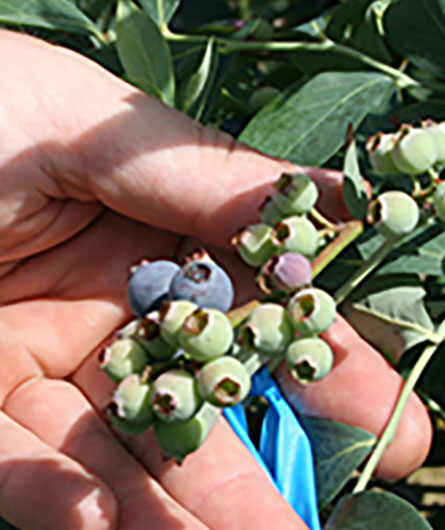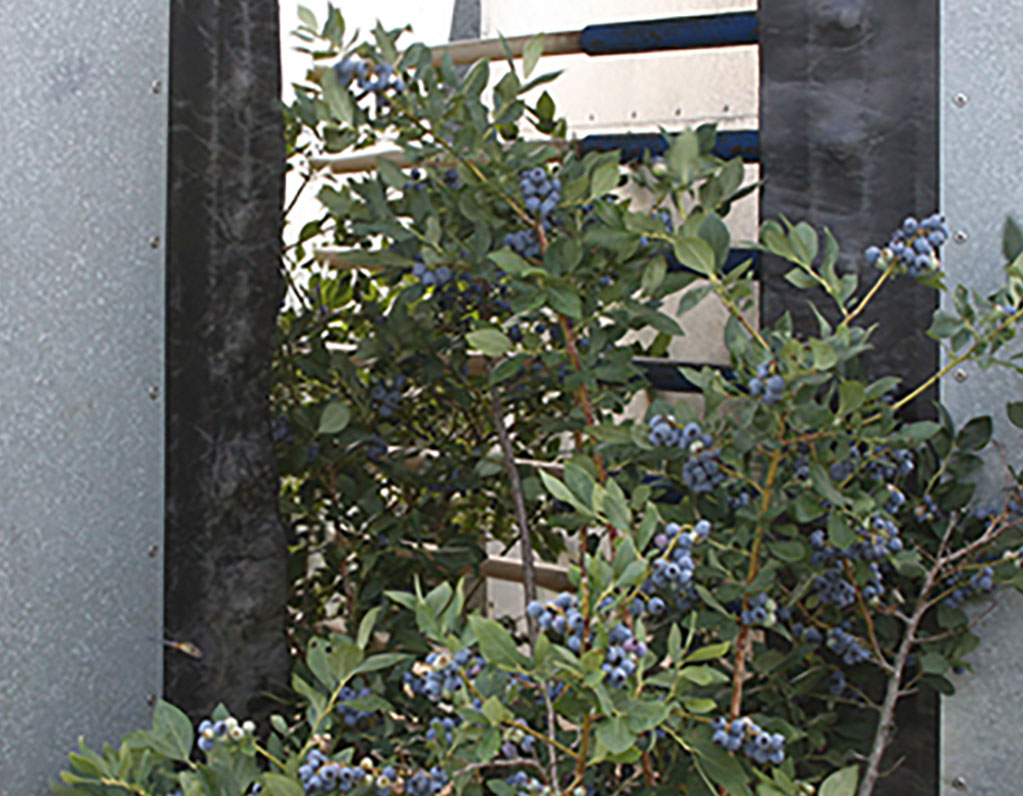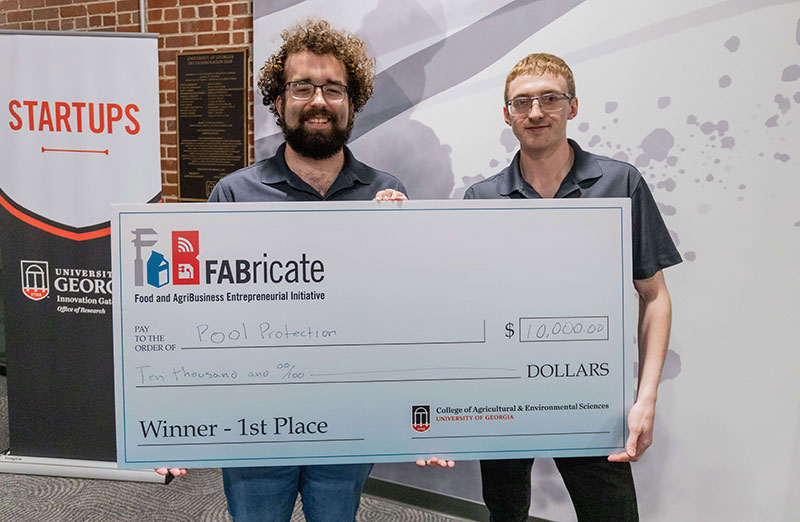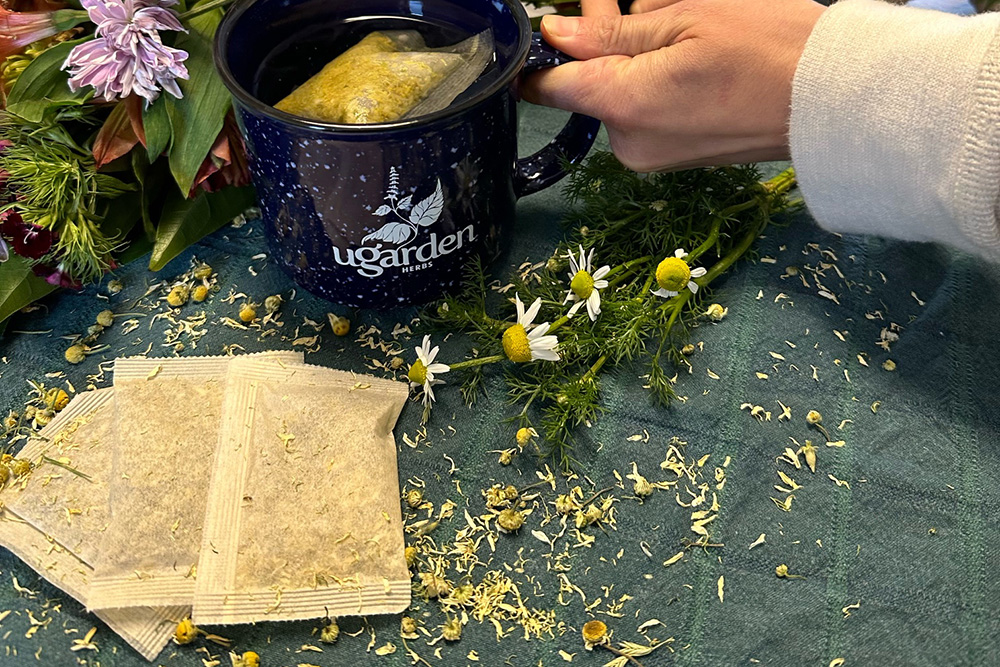A University of Georgia blueberry specialist and agricultural engineer are equipping southeast Georgia blueberry growers with knowledge about improved spraying techniques to help manage the crop and keep Georgia at No. 1 in blueberry production.
Renee Holland, University of Georgia Extension blueberry agent, and Glen Rains, professor and engineer at the UGA Tifton campus, are teaming up with Georgia farmers to find the best spray coverage for blueberries. Spraying blueberries with insecticides is a common practice, but some growers have expressed concern about how to get the best results.
“Farmers were not sure about how much coverage they were getting on their blueberries,” Holland said. “I wanted to learn more about the different sprayers, so that I could help them.”
Rains is studying different types of sprayers and collecting information on how well those sprayers penetrate the different locations of blueberry plants. Working with UGA blueberry entomologist Ash Sial, Rains takes samples to see how much chemical residue reaches the leaves of the bushes. Sial then takes the samples and puts them in cups with pests to determine if the chemical is effective.
Rains is also working with Holland, other county Extension agents and a Camden County, Georgia, farmer to determine whether spraying the chemicals directly into the farm’s irrigation system is an effective practice.
“We looked at, and are continuing to look at, different types of sprayers and their efficiency,” Rains said. “It is necessary that farmers use a sprayer that controls the diseases that they are targeting.”
Holland hosted the Sprayer Coverage Field Day in 2013 in Alma, Georgia. She, along with Rains, demonstrated spraying equipment and presented information to assist and teach the growers the best way to receive full coverage on their blueberries.
The event drew more than 200 growers from across the region who saw the sprayers in action and looked at spray cards Rains brought to show the amount of coverage each card received when sprayed in the field.
At a separate workshop in 2014, Rains demonstrated how to calibrate and change sprayers as well as where and how to look for wear and tear on the sprayers, and how to adjust them.
“We want to be able to show (growers) the data — if it’s good or bad,” Holland said. “The farmers in this area truly have a thirst for knowledge.”
According to Holland, the UGA Extension field days and the help that growers have received from the specialists have sparked a change in behavior from area blueberry farmers.
“I have more people call me with questions and asking how they can be more effective and get better sprayer coverage,” Holland said. “We want them to be good stewards of the environment and effectively use spray or other practices. We want to help reduce certain pests, increase yield, help them and help the economy. The best way to do that is to show them the best management practices.”
According to the most recent data from the UGA Center for Agribusiness and Economic Development, the 2013 farm gate value for Georgia blueberries was $312.7 million. Of the value of fruits and nuts grown in Georgia in 2013, blueberries account for 42.9 percent. Georgia leads the nation in blueberry production, and Bacon County is the No. 1 producer of blueberries in Georgia, producing nearly $90 million in farm gate value in 2013.
(Jordan Hill is an intern with the College of Agricultural and Environmental Sciences.)








